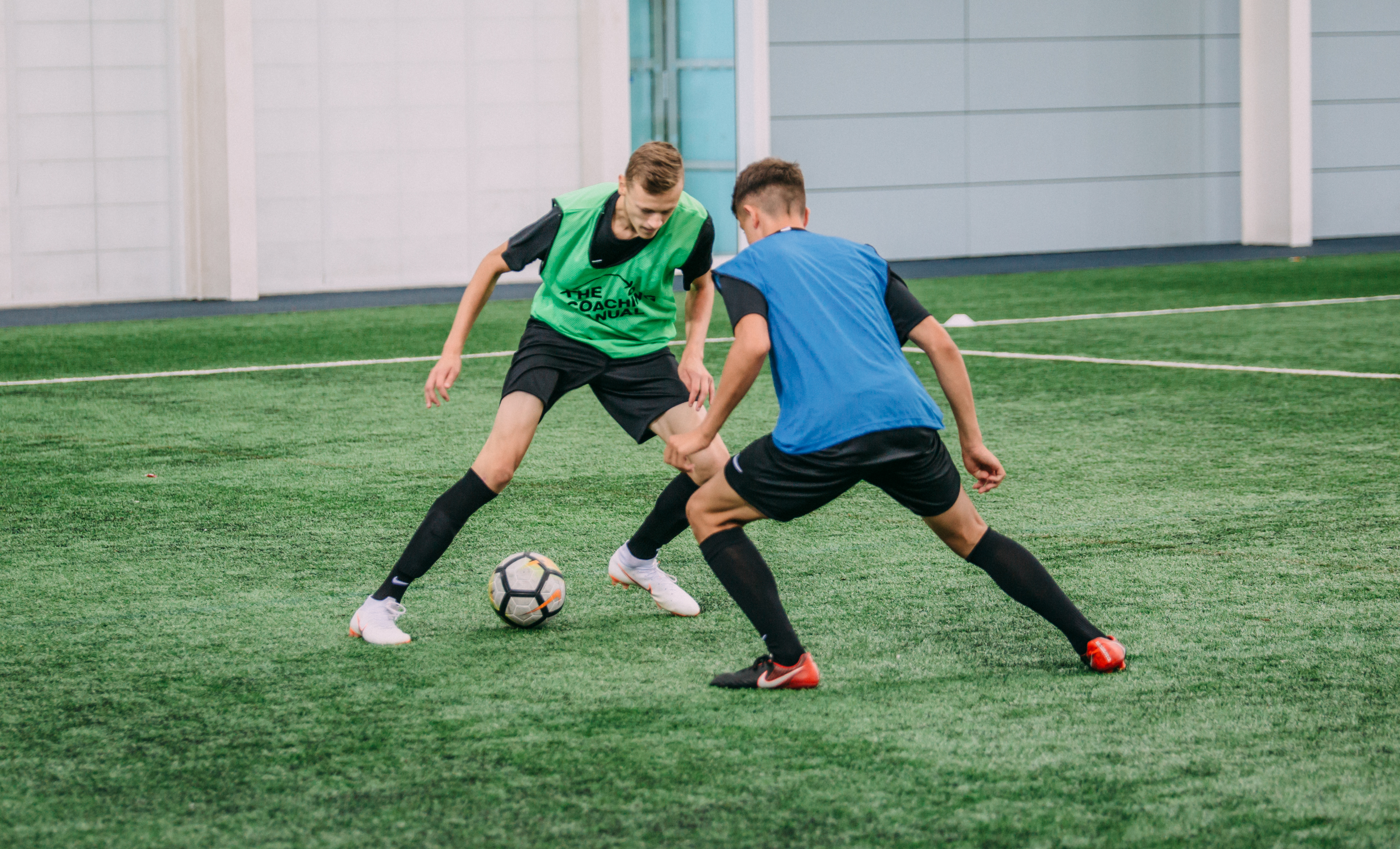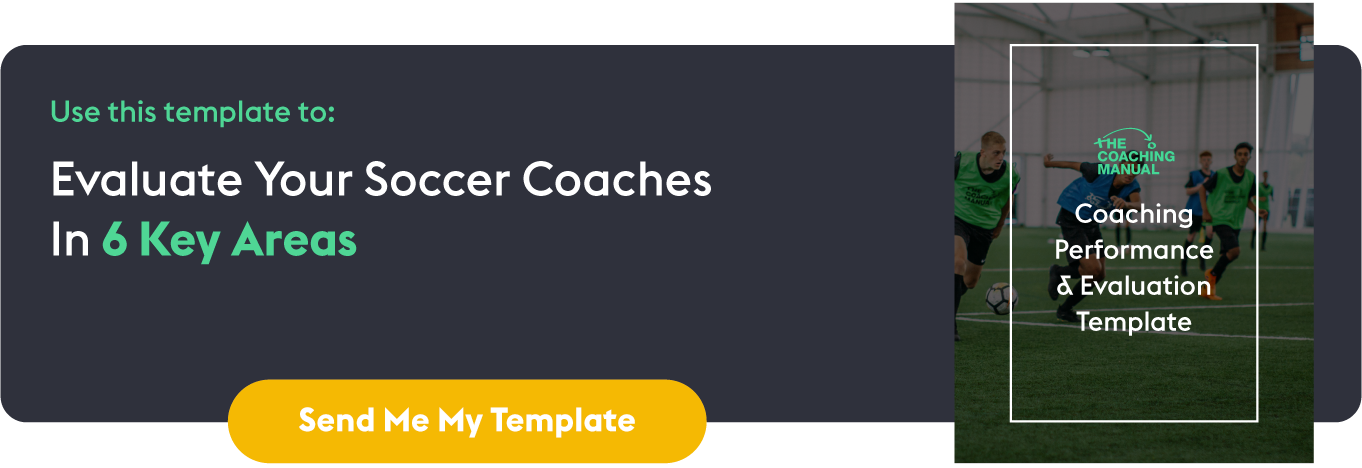Some coaches are natural all-rounders, others thrive when teaching certain skills or working with specific age groups. As a Director of Coaching (DOC), it's up to you to retain and recruit the best coaches and to ensure that those coaches are assigned to the best age group for their skill set, experience and coaching style.
What are the age groups in US soccer?
Age is used for segmenting players in the US. Ahead of the 2017-18 season, US Soccer amended its rules on age group registration to align with the start of the calendar year, rather than the academic year. For instance, in 2019, an under-15 (U15) player - i.e. players aged 15 or under - would be born from January 1st to December 31st 2004. These registration calendars apply to all age groups.
How does player development vary by age group?
Just as in the academic world, children develop at different speeds within the sporting arena. That's why we prefer to use broader age ranges - namely five to eight, nine to 12 and over-13 - for our session plans. It's possible to identify some common development characteristics within these wider groups:
-
Ages 5-8
At the younger end of the spectrum, there's a good chance that the kids won't have played soccer before (and even if they have, they most likely won't have been coached). They tend to have little interest in comparing their own soccer skills to those of their teammates - although don't be surprised to see a more competitive edge creep in among the older players in this group.
-
Ages 9-12
Players typically acquire a growing interest in competition - both with their teammates and opposing players - throughout this age range. Sport often becomes more important at these ages, fuelling the player's desire to master the basics of soccer, attract positive feedback from coaches, and have a positive outcome on matches.
-
Age 13+
By this point, players have mastered the basics, have developed a genuine passion for the game, and are eager to improve. They'll be increasingly aware of the tactical side of soccer - in fact, don't be surprised if their knowledge starts to challenge your own. At older ages, they may start to attend soccer camps and even adopt their own pre-season fitness drills.
How to identify the best coaches for different age groups
In some instances, the DOC may simply have a gut feeling that a coach would be best suited to working with a specific age group. However, it's more likely that assigning your coaches to different age levels will be a matter of assessing their qualifications, personality, experience and skills. Coaches may also have a desire to work with new age groups; it's up to you to effectively evaluate their strengths and weaknesses, and set clear objectives to help them progress.
These are some of the key traits to look out for when it comes to coaching different age levels. A wide range of qualifications are available to age-level coaches, so for clarity, we've based the following guidance on the US Soccer Coaching Licence Pathway.
-
Coaching ages 5-8
Qualifications
The National F licence is a two-hour online course geared toward creating a fun, age-appropriate environment for five to eight-year-old players. Coaches learn best practice for working with younger players, including the importance of focusing on activity-centred sessions and playing in smaller groups (typically four-a-side).
Personality
Perhaps the biggest beneficial personality trait here is the ability to understand player limitations. This should ideally be accompanied by plenty of patience and good humour!
Experience and skill set
Players at this level are generally most interested in being with their friends and enjoying themselves. Coaches should, therefore, have a skill set geared toward making soccer training fun, while also teaching the basics of the game. The aim here is to instil a love of soccer that encourages kids to continue playing as they advance through the age levels.
-
Coaching ages 9-12
Qualifications
Combining field sessions and in-person lectures, the National E course is primarily geared toward teaching coaches how to work effectively with players aged between nine and 12. Coaches can register immediately after completing the F course.
Personality
Coaching in this age range requires bags of energy and enthusiasm to stimulate ideas in their players. Coaches should also be adept at encouraging players and giving out praise when it's due (although not so much that it loses relevance or impact).
Experience and skill set
As these players become increasingly competitive, the coach must be skilled in challenging them to improve while still ensuring that training remains a fun and positive environment. It's important that this competitive streak is leveraged in the right way. This requires a coach who is able to instil the principles of teamwork, rather than driving individual players to outshine their teammates.
-
Coaching age 13+
Qualifications
Given the size of this player demographic, a range of relevant coaching qualifications apply. The National D licence is aimed at coaching 13 to 14-year-olds and can be registered for after a coach has held an E licence for six months. At National C level - designed for those leading training sessions in a competitive youth soccer environment - coaches can register once they have held the D licence for a year.
The minimum standard for US Soccer Development Academy coaches is National B, for which applicants must have worked with an 11-a-side youth team and held a C licence for at least 12 months. Finally, the National A Youth course focuses on the development of potential professionals. Coaches must have access to a team of elite youth players, as well as having held a B licence for at least six months.
Personality
Players at this level start to develop their own methods and ideas about the game; they need a coach who can encourage and develop this independence. At the same time, the ability to play within a defined tactical system becomes increasingly important in older age levels, so the coach should also be able to instil a sense of discipline in their players.
Experience and skill set
One-on-one communication skills take on greater importance when coaching early-teenagers. Not only are these players striving to improve their soccer skills, but they're also often struggling to identify who they are as people. The best coaches at this level are able to balance the time required for forming personal bonds with the need to continue challenging and developing their players.
As these players start to develop their own ideas about soccer, they'll need a coach with significant awareness and understanding of the game, as well as the ability to communicate their depth of experience in an articulate, unpatronising manner.



